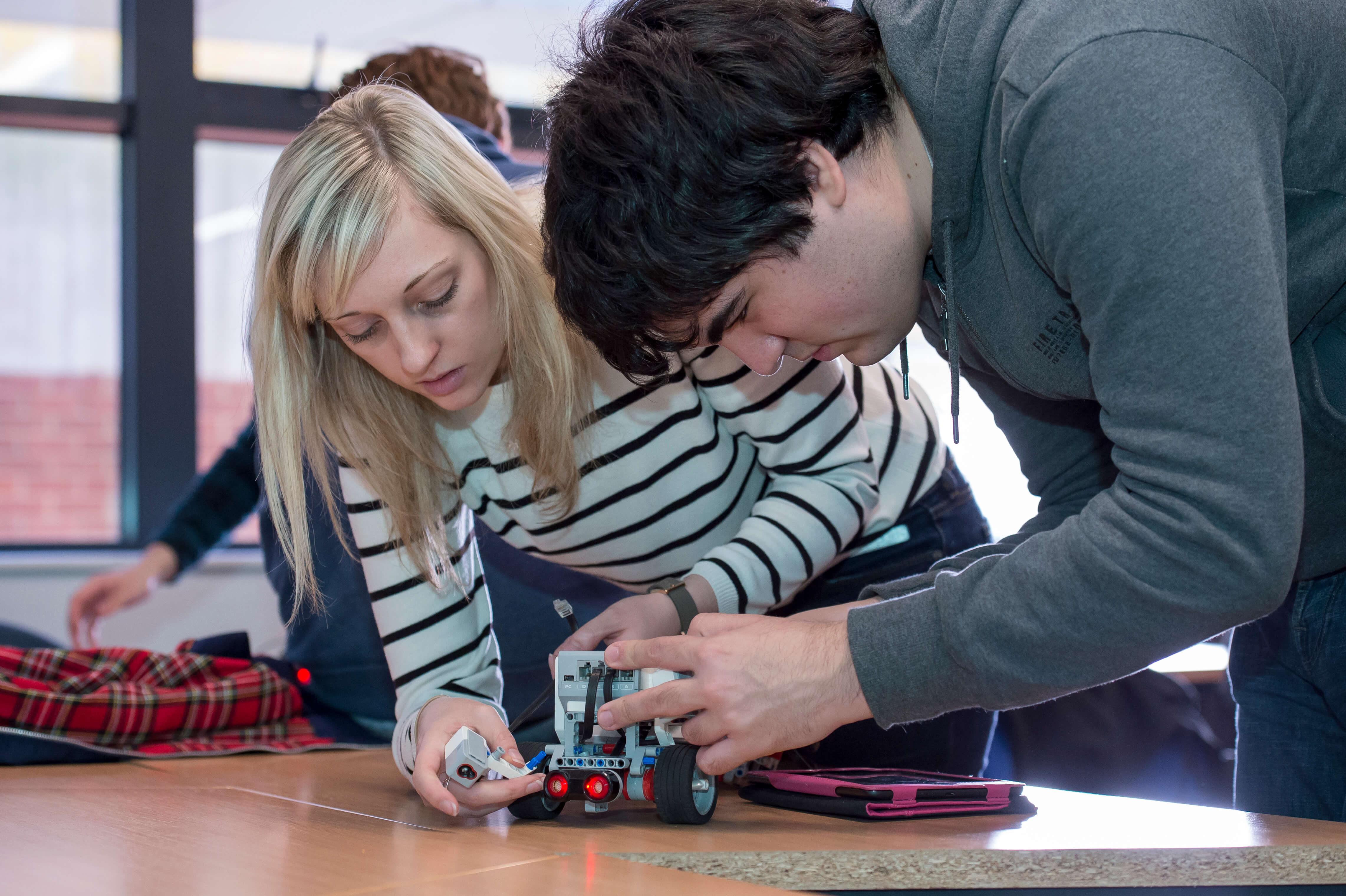The engineering environment is changing. In the last five years alone, many technological advancements have taken flight. More major developments have been scheduled for the years to come.
What’s defined as engineering talent will soon inevitably adapt to this new world. The Fourth Industrial Revolution isn’t the only major shift engineers must prepare for; today’s global challenges, from the climate crisis to ensuring safe and resilient infrastructure for demographic shifts, are in need of urgent solutions.
Engineers have made valuable contributions to the world, from the ship builders of the iron age to the machine builders of the industrial revolution and the building of the International Space Station. It’s this broad and crucial profession that would be called upon to lead the charge into Industry 4.0. But first, your engineering skillset must be upskilled for this highly unstable yet exciting future.
The University of Sussex’s Department of Engineering & Design’s suite of engineering courses is designed to achieve all this and more.
Whether it’s to kickstart your engineering career or advance it up the pay scale, courses offered by the Department of Engineering & Design let you explore multiple career avenues at one of the UK’s vibrant engineering schools.

Source: University of Sussex
It’s one of the few general engineering departments in the UK that offers undergraduate degrees in Mechanical, Automotive, Electrical/Electronic engineering and Product Design. This grants students the particular experience of mixing in classes and projects with students studying for other degrees. The department practices flexibility with undergraduates’ choice of courses, i.e. those who aren’t sure which type of engineering degree to pursue will not have to make a final decision until the end of the first term, and they can switch between BEng and MEng in their third year.
At postgraduate level, the department offers an Engineering PhD and the following MSc courses: 5G Mobile Communications and Intelligent Embedded Systems, Robotics and Autonomous Systems, Advanced Mechanical Engineering, Digital Signal and Image Processing and Engineering Business Management. For the first two courses, students can choose to integrate an industrial placement year into the course structure.
Regardless of study level, each University of Sussex engineering degree enhances the employment opportunities of graduates. With its practical orientation, there are many opportunities to develop leadership and collaborative skills, the very same list of skills identified by LinkedIn research as “increasingly valued” as we navigate more automation and AI in the workplace.
Sussex engineering graduates can expect to enter the labour market confidently. In the UK, a Royal Academy of Engineering report found that “Contrary to a widely held view, the employment of engineering graduates in engineering occupations out of those who find work six months after graduation is very high, at over 80 percent”.
Nearly two-thirds of British employers ranked the recruitment of engineering staff with the right skills at the top of their list of challenges in achieving their business objectives in the next three years, another report by the Institution of Engineering and Technology found.

Source: University of Sussex
International students with plans to head home after graduation will experience intense demand for high skilled labour. LinkedIn’s Future of Skills 2019 report estimates a labour shortage of 12.3 million workers by 2020 in the APAC alone, a talent crunch employers are hungry to fill with the rising skills of this new era.
One area of rising skills in this region, as identified in the report, is Robotic Process Automation (RPA). RPA professionals automate high volume, repeatable business tasks and processes using software with artificial intelligence and machine learning capabilities – something a Robotics graduate from the University of Sussex would be well-poised to handle.
This can be explained by the impressive range of industry experience offered by this modern and research-driven engineering department.
Every student can choose exciting final year projects which relate to real-life, practical applications and which most often touch on areas complementary to their main field of study such as sensors, medicine, aerospace, robotics, informatics and so on. Meanwhile, the MEng group projects offer a rich engineering experience encompassing technical, managerial, marketing, communications and a whole lot of fun.
In the one-year industrial placement, students are matched to the department’s long-standing collaborations with leaders in the engineering and design industry and international institutions. Some of the biggest names the department conduct collaborative research with GE Aviation, Plessey Semiconductors, Jaguar Land Rover, Riccardo, Huawei and Samsung. This research then informs the teaching and dissertation projects conducted within the department.
In addition to placements and research, these industry partners also sponsor prizes, projects and research to students over the course of their studies. One industrial sponsorship which gives students invaluable insight into industrial requirements and approaches to complex problem solving, is the annual Formula Student project. Sponsored by Mobil 1, the project gives students an opportunity to design, build and race a single-seat racing car.
As Mechanical Engineering graduate, Ventham Varathanathan, concludes: “My personal highlight was being part of the University’s Formula Student team and being able to race a car that we designed and built by ourselves, in Silverstone against other universities.”
Follow the University of Sussex on Facebook, Twitter, YouTube, Vimeo and Instagram
Liked this? Then you’ll love…
Explore multiple career avenues with a degree in Mechanical Engineering
International student stories: Studying at Sussex’s School of Life Sciences










